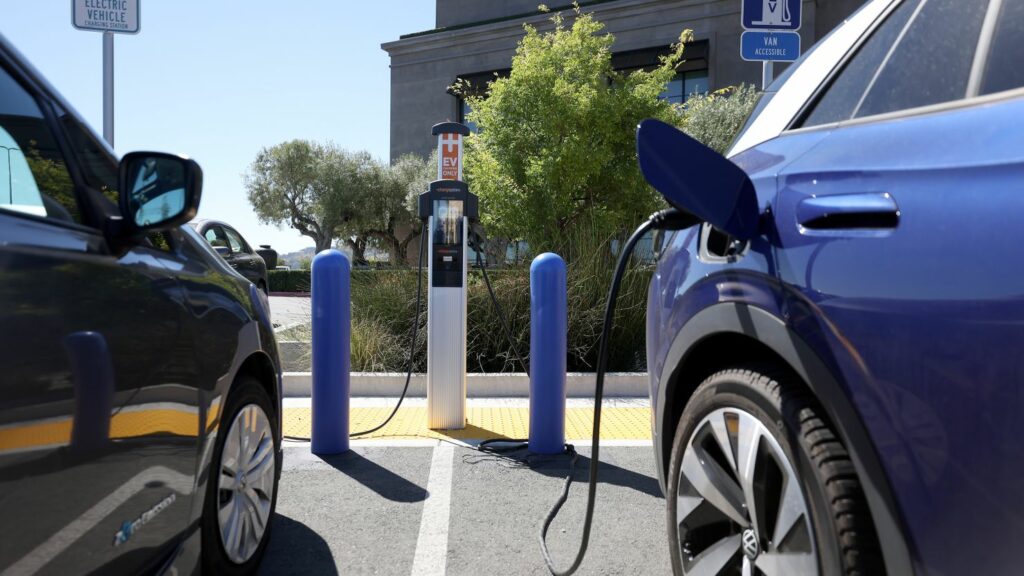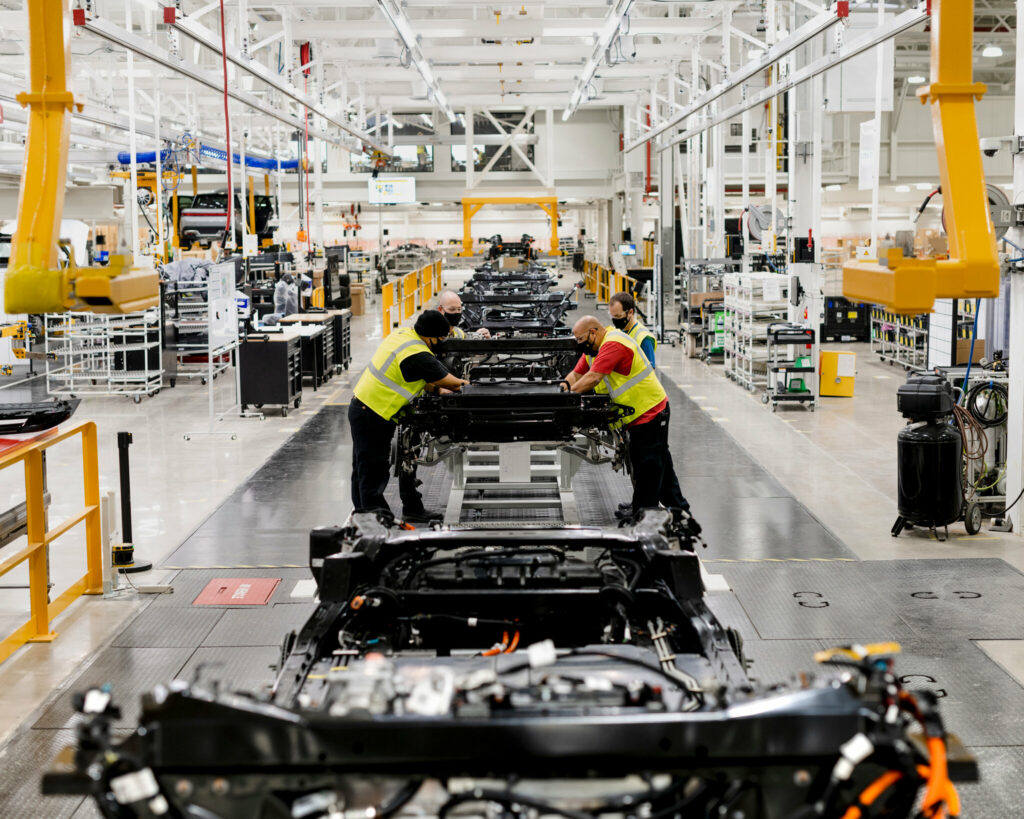There are some things that need to be repeated over and over again in the climate debate, including one that also has to be repeated over and over again in economic debates: If something needs a subsidy to compete it isn’t secretly more efficient and only government knows. It is less efficient, so subsidizing it destroys wealth and takes you further from where you want to be. But we won’t say it again, because Bjorn Lomborg just did: “We constantly hear that electric cars are the future – cleaner, cheaper and better. But if they’re so good, why does California need to ban gasoline-powered cars? Why does the world spend $30 billion a year subsidizing electric ones?” And, he adds, for no purpose at all, because even on the alarmists’ own terms, switching to EVs will do nothing for climate.
The latter part is as crucial as it is surprising. Though also in some sense unimportant, because deliberately wasting money in an effort to save it is folly by any standard. But given the terms of the climate debate Lomborg is right to add this point:
“The climate effect of our electric-car efforts in the 2020s will be trivial. If every country achieved its stated ambitious electric-vehicle targets by 2030, the world would save 231 million tons of CO2 emissions. Plugging these savings into the standard United Nations Climate Panel model, that comes to a reduction of 0.0002 degree Fahrenheit by the end of the century.”
Indeed, as we have pointed out elsewhere, if every nation achieved its stated ambitious Paris Accord goals overall, goaded by a computer model that said otherwise we’d have a climate heating breakdown crisis, it comes to a reduction of 0.1 degrees by the end of the century. So all pain, and no gain.
Indeed the calculus is even worse since, as we have noted elsewhere, the data show that lifetime GHG emissions from electric cars are frequently worse than from regular cars. Meanwhile Lomborg thinks that electric cars are sometimes a better choice, but “only sometimes and somewhat better” while “they’re often much costlier, and they aren’t necessarily all that much cleaner.” Then he does that economist thing where you look at the big picture over the long run.
For instance, there’s the issue of where the electricity comes from to charge it. Plus “Making batteries for electric cars also requires a massive amount of energy, mostly from burning coal in China.” Besides which “The vehicles themselves pollute only slightly less than a gasoline car because their massive batteries and consequent weight leads to more particulate pollution from greater wear on brakes, tires and roads” and “One recent study found that electric cars put out more of the most dangerous particulate air pollution than gasoline-powered cars in 70% of U.S. states. An American Economic Association study found that rather than lowering air pollution, on average each additional electric car in the U.S. causes additional air-pollution damage worth $1,100 over its lifetime.”
Still not convinced? Well, “The minerals required for those batteries also present an ethical problem, as many are mined in areas with dismal human-rights records. Most cobalt, for instance, is dug out in Congo, where child labor is not uncommon, specifically in mining. There are security risks too, given that mineral processing is concentrated in China.” This nasty aspect of EVs isn’t exactly unknown. But given how resolutely it gets ignored, it needs to be repeated loudly and often.
Is Lomborg saying don’t buy one? Not at all. He’s saying let the price reflect the full cost and then consumers can decide. “Electric vehicles will take over the market only if innovation makes them actually better and cheaper than gasoline-powered cars. Politicians are spending hundreds of billions of dollars and keeping consumers from the cars they want for virtually no climate benefit.”
Yes, it needed to be said again. Especially with the cost of charging them skyrocketing in Europe, sending all those supposed savings right out the tailpipe.



Key takeaway: If the World meets it’s Net Zero by 2050 target, the climate computer models predict that it will prevent the earth temperature from rising 0.1°C by 2100. WOW!
I will point out that the McKinsey Report of January 25, 2022 estimates it will cost US$275 trillion to accomplish that. That is an expensive air conditioner! My thermostat can’t detect a difference of 0.1°C.
Norway is removing their public charging stations, because the cost of electricity is so high they can't afford to give the charges away.
McKinsey Report of January 25, 2022 estimates it will cost US$275 trillion to accomplish that.
This amount equates to US$35,000 for every man, woman and child on the planet.
Surely using a basic averaging math the earth's climate varies by a degree or so up and down on a century scale. How is it even possible to detect let alone meet a GHG/warming reduction of 0.1deg ? By what metric method is it even possible to actually credibly detect the average temperature having increased or decreased by that amount ever ? I get that instruments can be calibrated and precise but are the 10s of thousands of carefully calibrated instruments so perfectly aligned and strictly functional within specified parameters that a tenth of a single degree measurement is truly detectable in an averaging of the entire planet's temeperature samples?.....really? What sort of timeframe are we doing this calculation in? Does not the sun vary in it's output in cycles over multidecadal scalles also? Do not cosmic waves/ charged particles hitting the magnetosphere come and go and affect cloud nucleation? Isn't water vapour (the cloud stuff) THE most common "greenhouse gas" by an enormous margin? Would not the presence of clouds to reflect the varying sun in greater or lesser amounts over decades make calculating the human driven reduction of the ONE TENTH of a degree basically ludicrously impossible to detect? I am so exhausted by all this bs .